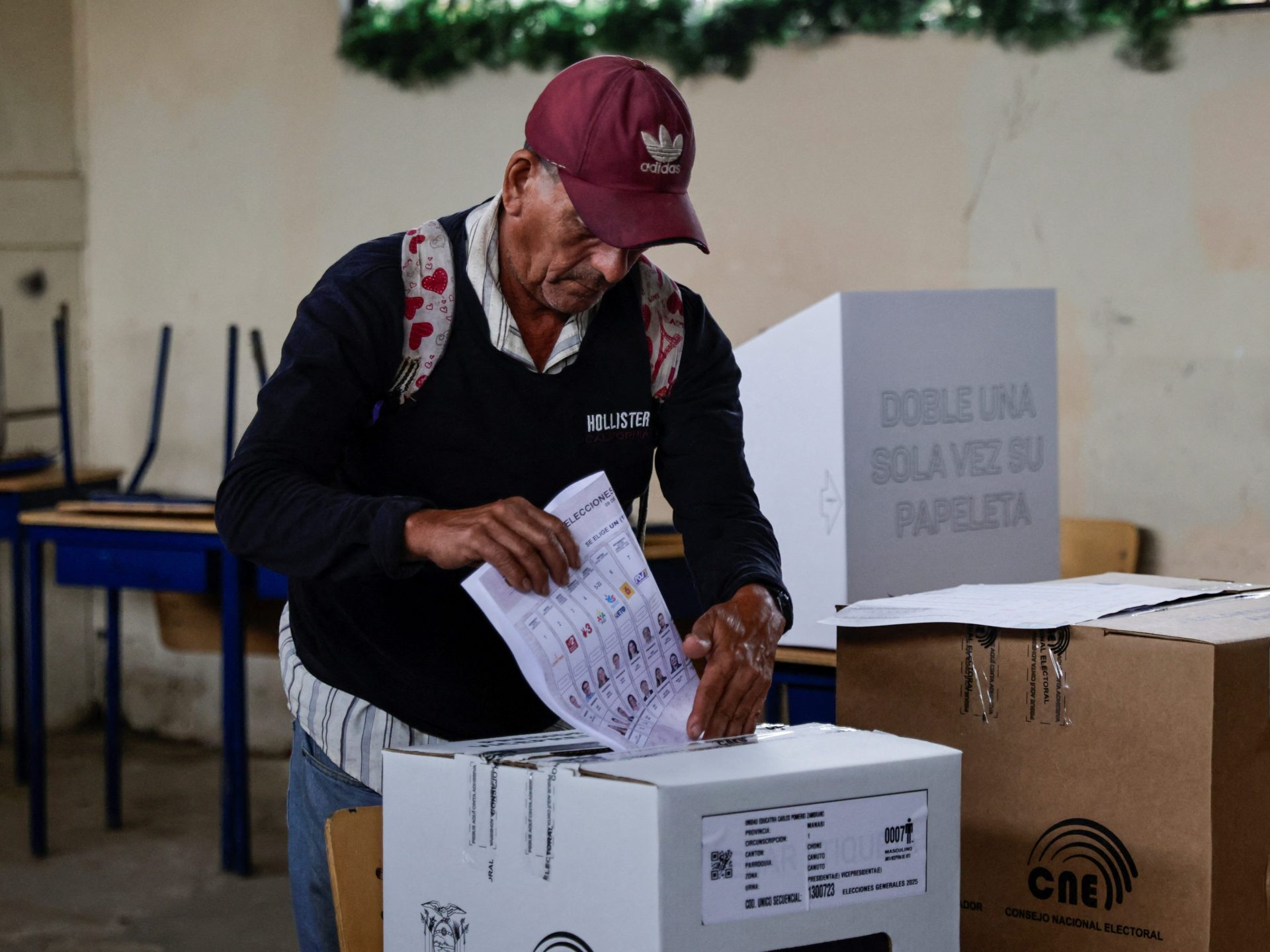More
Ecuador votes in presidential election dominated by security concerns

The upcoming presidential election in Ecuador has become a pivotal moment for a nation grappling with a spiraling security crisis and a faltering economy. On Sunday, voters will head to the polls to decide whether to re-elect incumbent President Daniel Noboa or choose a new leader from among 15 candidates. The race is largely dominated by two figures: Noboa, the 37-year-old hard-right president and scion of a billionaire banana magnate, and Luisa Gonzalez, a 47-year-old left-wing lawmaker and protege of former President Rafael Correa. With polls predicting a tight race, the election has become a referendum on how to address Ecuador’s twin crises of violence and economic instability.
At the heart of the campaign is the issue of security. Ecuador, once considered one of the safest countries in the world, has descended into chaos in recent years, with cartel turf wars and drug-related violence spiraling out of control. President Noboa, who came to power just 14 months ago, has staked his political future on his “mano dura” (iron fist) approach to crime. His government has deployed the military on the streets and within prisons, implemented a state of emergency, and centralized executive power to tackle the violence. Noboa claims these measures have led to a 15% reduction in violent deaths, a significant drop in prison violence, and the capture of several high-profile gang leaders. At a campaign rally in Quito, he declared, “Today, Ecuador has changed and wants to keep changing, it wants to consolidate its triumph. This Sunday, reclaim your ability to dream.”
Despite these claims, critics argue that Noboa’s aggressive tactics have come at a high cost. Human rights groups have accused his government of abuses, including the murder of four boys whose charred bodies were found near an army base. Analysts also question the long-term effectiveness of his approach, as Ecuador continues to experience record-high homicide rates. In January, the country reported 700 killings in a single month, a grim milestone that has left many citizens desperate for solutions. Yet, Noboa’s tough-on-crime stance resonates with a population weary of violence. According to analyst Omar Maluk, many voters are willing to compromise on democratic principles for a leader who can restore order, even if it means embracing authoritarian-style governance: “Our research shows that the majority of voters want a sort of dictatorship, they want that iron fist whatever the ideology behind it is.”
Luisa Gonzalez, Noboa’s main challenger, is offering a different vision for Ecuador’s future. A seasoned lawmaker with a background in social justice, Gonzalez has proposed a twin approach to addressing the crisis: combating crime through targeted military and police operations while also addressing the root causes of violence, such as poverty and inequality. She has vowed to implement social spending programs in the most violent areas and to tackle corruption within the judiciary. At a recent campaign event, Gonzalez emphasized the need for a holistic strategy: “We can’t talk about controlling violence without thinking of social justice, of building an Ecuador with peace, not with war. We are moving toward this transformation with each one of you … we’ll save ourselves, together.”
The economic dimension of the crisis has further complicated the race. Ecuador’s economy likely slipped into recession last year, hit by rising inflation, stagnant growth, and the fallout from the security crisis. Noboa has turned to the International Monetary Fund (IMF) for a $4 billion financial rescue package, a decision that has drawn criticism from opponents who fear it will deepen inequality. Gonzalez, seeking to reassure voters, has stated that she would work with the IMF but only on terms that protect working families. “The IMF is welcome to help,” she said, “but not at the expense of the people.”
As the election approaches, Ecuador stands at a crossroads. The outcome will not only determine the direction of the country’s security and economic policies but also reflect the broader mood of a society in crisis. While Noboa’s hardline approach has earned him a significant lead in the polls, Gonzalez’s emphasis on social justice and systemic reform resonates with many who believe that addressing the root causes of violence is the only way to achieve lasting peace. Should no candidate secure the required majority or a 10-point lead in the first round, the election will go to a runoff on April 13, prolonging the uncertainty. For now, Ecuador waits with bated breath, its future hanging in the balance.